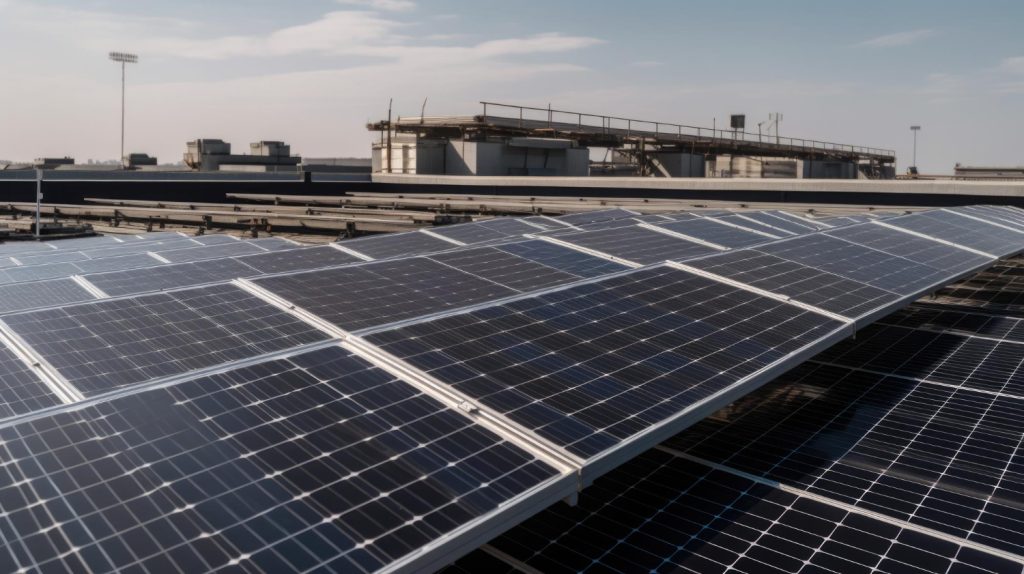Solar energy is transforming the global energy landscape, offering a sustainable and cost-effective solution to the growing energy demands. One of the most significant advantages of solar energy is its potential to enhance energy independence, reducing reliance on fossil fuels and centralized power grids. This blog explores how solar energy contributes to energy independence, the role of residential solar panels, and considerations for homeowners in India looking to invest in solar power.
Understanding Energy Independence
Energy independence refers to the ability of a nation or an individual to meet their energy needs without relying on external sources. Achieving energy independence can lead to greater energy security, economic stability, and environmental sustainability. Solar energy, as a renewable resource, plays a crucial role in this paradigm shift.
The Role of Solar Energy in Energy Independence
1. Reducing Reliance on Fossil Fuels
Traditional energy sources, such as coal, oil, and natural gas, are finite and often imported, making countries vulnerable to geopolitical tensions and price volatility. Solar energy, on the other hand, harnesses the power of the sun, a virtually limitless resource available globally.
Key Points:
- Sustainability: Solar energy is renewable and abundant, providing a continuous supply of power.
- Cost Stability: Solar energy reduces exposure to fluctuating fossil fuel prices, leading to more stable energy costs.
2. Decentralizing Power Generation
Centralized power grids are susceptible to failures and inefficiencies. By generating electricity locally through residential solar panels, individuals and communities can reduce their dependence on the grid, enhancing resilience against outages and natural disasters.
Key Points:
- Local Generation: Solar panels installed on homes and businesses enable local power generation.
- Grid Independence: Reduces the burden on centralized grids and mitigates the risk of widespread power outages.
3. Economic Benefits
Investing in solar energy can lead to significant economic advantages, both at the national and individual levels. For homeowners, this includes long-term savings on electricity bills and potential earnings from surplus power.
Key Points:
- Cost Savings: Lower electricity bills and potential income from selling excess power back to the grid.
- Job Creation: The solar industry creates jobs in manufacturing, installation, and maintenance.
Residential Solar Panels: A Path to Independence
Best Solar Panels in India
Choosing the best solar panels in India is critical for maximizing energy production and achieving energy independence. High-quality panels offer better efficiency, durability, and performance.
Considerations:
- Efficiency: Look for panels with high efficiency rates to generate more power from the same amount of sunlight.
- Durability: Panels should withstand harsh weather conditions, ensuring long-term performance.
- Warranty: A longer warranty period reflects confidence in the product’s longevity.
Solar System in Home Price
The solar system in home price can vary based on several factors, including the size of the system, the type of panels, and installation costs. While the initial investment can be substantial, the long-term savings make it a worthwhile expenditure.
Key Points:
- Initial Investment: Costs include panels, inverters, mounting structures, and installation.
- Long-Term Savings: Significant reduction in electricity bills over the lifespan of the system.
Best Solar Panels for Home
Selecting the best solar panels for home involves evaluating various factors such as efficiency, aesthetics, and cost. Monocrystalline panels, known for their high efficiency and sleek appearance, are a popular choice for residential installations.
Key Points:
- Type of Panels: Monocrystalline, polycrystalline, and thin-film panels each have their pros and cons.
- Energy Needs: Size the system based on your household’s energy consumption.
Solar Panel for Home Price in India
The solar panel for home price in India ranges from ₹45,000 to ₹75,000 per kW, depending on the type and brand. It’s essential to get multiple quotes and consider the quality and efficiency of the panels.
Key Points:
- Price Comparison: Obtain quotes from different suppliers to ensure competitive pricing.
- Incentives: Explore government subsidies and incentives that can reduce the overall cost.
Implementation and Maintenance
Proper installation and maintenance are crucial for the optimal performance of residential solar panels. Regular maintenance ensures the system operates efficiently and extends its lifespan.
Key Points:
- Professional Installation: Ensure the system is installed by certified professionals.
- Maintenance: Periodic cleaning and inspection to maintain efficiency and performance.
Conclusion
Solar energy plays a pivotal role in achieving energy independence by reducing reliance on fossil fuels, decentralizing power generation, and offering significant economic benefits. For homeowners in India, investing in residential solar panels is a step towards sustainable living and long-term cost savings. By selecting the best solar panels for home, understanding the solar system in home price, and leveraging available incentives, individuals can make informed decisions and contribute to a greener future. Embrace the power of the sun and move towards energy independence with solar energy.





